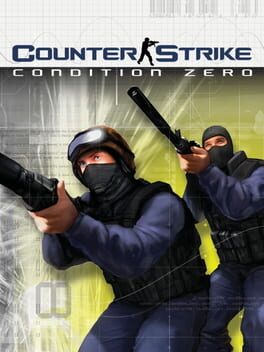By 2002, Valve Software hoped to have a sequel to Counter-Strike on the market to help fill the stop-gap between Half-Life 1+2, enlisting Gearbox Software (makers of the well-regarded Half-Life expansion packs). However, missed deadlines forced the game to be handed over to little-known Ritual Entertainment, who remade the game into a lengthy single-player campaign bearing little resemblance to Counter-Strike whatsoever.
Finally, Turtle Rock Studios was brought on for their very first project: tidy up Gearbox's graphical work, trim down Ritual's campaign (into what we now call Condition Zero: Deleted Scenes), and implement computer-controlled player AI. The result is Counter-Strike: Condition Zero, an incremental visual upgrade over the original Counter-Strike, released mere months before Counter-Strike: Source, Valve's in-house remake of the original using the brand new, groundbreaking Source engine.
Pleased with their work, Valve granted Turtle Rock license to create an original IP that would later become Left 4 Dead. Gearbox Software, having played extremely important early-development roles in game series like Doom (1993), Quake, Half-Life, Tony Hawk's Pro Skater, and Halo, did not find any success of their own until the launch of their Borderlands franchise years later. Ritual Entertainment was never heard from again.
No, there's not much reason to play CS:CZ anymore. That being said, it's an extremely amusing piece of video game history and worth revisiting if you have any nostalgia for classic CS.
Finally, Turtle Rock Studios was brought on for their very first project: tidy up Gearbox's graphical work, trim down Ritual's campaign (into what we now call Condition Zero: Deleted Scenes), and implement computer-controlled player AI. The result is Counter-Strike: Condition Zero, an incremental visual upgrade over the original Counter-Strike, released mere months before Counter-Strike: Source, Valve's in-house remake of the original using the brand new, groundbreaking Source engine.
Pleased with their work, Valve granted Turtle Rock license to create an original IP that would later become Left 4 Dead. Gearbox Software, having played extremely important early-development roles in game series like Doom (1993), Quake, Half-Life, Tony Hawk's Pro Skater, and Halo, did not find any success of their own until the launch of their Borderlands franchise years later. Ritual Entertainment was never heard from again.
No, there's not much reason to play CS:CZ anymore. That being said, it's an extremely amusing piece of video game history and worth revisiting if you have any nostalgia for classic CS.
